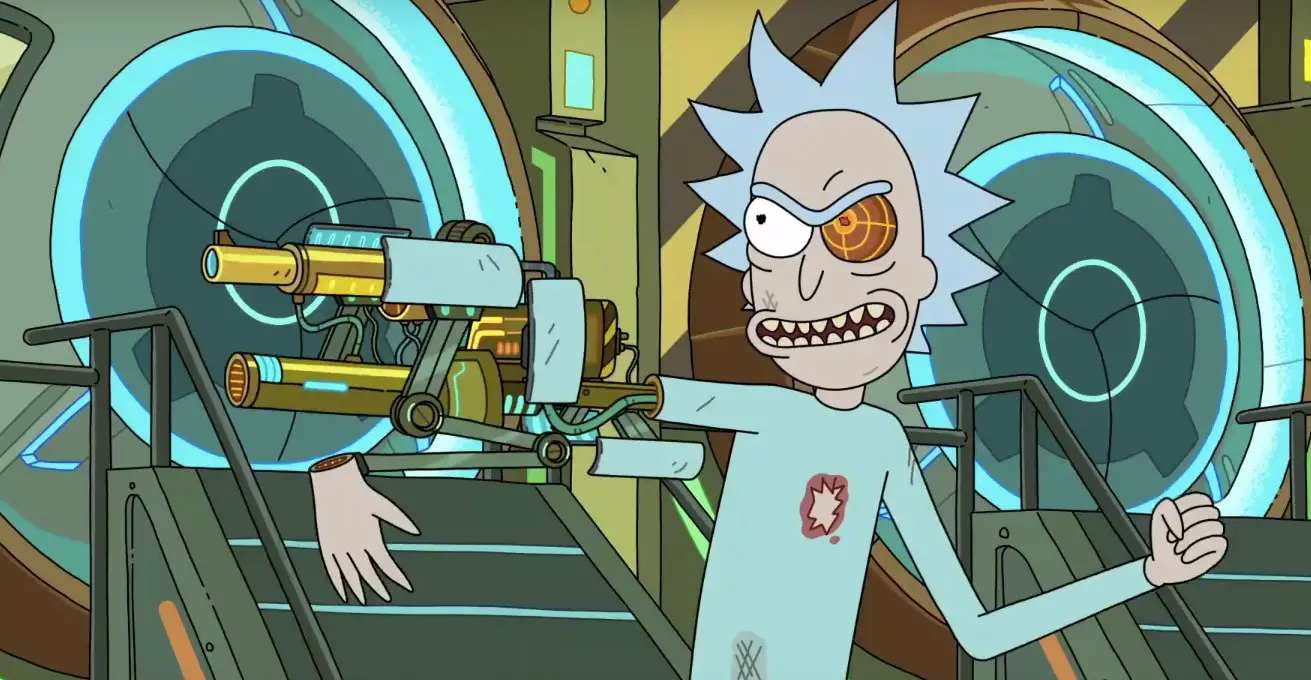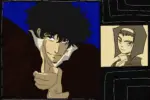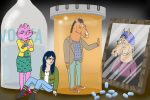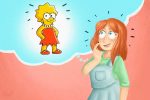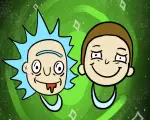In the realm of American animation, “Rick and Morty” stands out among the slim pickings of cartoons intended for more mature audiences due to its staggering imagination and unrivaled creativity. When compared to the arguably uninspired comedic fare of its contemporaries such as “Family Guy” or the modern episodes of “The Simpsons,” the awe-inspiring science-fiction adventures of an alcoholic genius and his innocent grandson successfully blends zany and unpredictable fun with a healthy, relatable dose of humanity that allows the series to remain as memorable and moving as it is hilarious. Stories spanning multiple planets, galaxies and timelines always remember their core appeal to the human spirit by lacing each episode with commentary on depression, loneliness and family dysfunction, a perfect balance of pathos and world immersion for creating a critical darling and cultivating a dedicated fandom.
Following two seasons of consistent excellence, that’s exactly what “Rick and Morty” accomplished. Roaming the internet or discussing pop culture without hearing fan theories or predictions regarding the upcoming episodes and hypothetical future seasons became practically impossible; suffice it to say, the one-time “Back to the Future” parody series had achieved an undeniable identity of its own.
However, after the second season concluded on a shocking cliffhanger as ominous as it was gripping, news of an increasingly elusive third season was slow to culminate due to disputes among the writing team and pressure to deliver on the hype. This problem only continued to snowball well over a year after the last new episode aired, as fan theories grew increasingly more elaborate and expectations escalated alongside the series’ rapidly evolving popularity. Eventually the dust settled and the fabled season three finally surfaced, launching its tremendous first episode as an April Fool’s joke with the promise of a full season continuation the following summer. Animation fans all over the world rejoiced; their new obsession was back.

Sadly, perhaps it’s for those very same creative differences that, despite a strong start last spring, season three’s proceeding episodes have felt…off. The transition to a new writing team hasn’t been horrendous, and they’ve admirably attempted to guide the characters and overarching story in unexplored directions rather than letting their series grow stale due to complacent repetition, a bold action that should be commended.
However, “Rick and Morty” wasn’t exactly in danger of losing its audience’s interest in the first place, as nearly every episode contained more raw creativity than some cartoons produce during their entire lifespan. Therefore, while this new interpretation of the characters is a refreshing concept, its been applied to a series that possessed more room to master its unique identity before branching off into uncharted territory for its eccentric cast of characters.
The philosophy behind season three seems to have been that darker is better, but in adopting this mindset the writers have significantly hindered the genuinely imaginative and expertly timed comedy that sufficiently balanced out the series’ darker undertones. Instead of finding an ambiguous human moral to wrap the episodic story around, “Rick and Morty” has lately embraced purely cynical nihilism; instead of piquing the viewer’s philosophical mindset with themes of existentialism and loneliness, it’s drowning them with depression.
The most noticeable change has been with Morty, the titular awkward high schooler trying to balance a normal education and typical teenage problems with the wild interplanetary adventures with his pseudo-mad scientist grandfather. Normally representing innocence, naivety and a source of attachment for the audience through strange alien worlds, the perfect foil to Rick’s cynical, arrogant mastermind, Morty’s character in season three has instead transitioned into a miniature Rick rather than the polar force the narrative requires for levity and balance.
After experiencing all of the twisted events that occurred during the first two seasons, Morty has adopted cynicism and apprehension towards his grandfather and adventuring with him, as both have directly caused his family to dissolve and his school life to fall by the wayside. This is an understandable and logical direction to take the character after all he’s been through, perhaps even foreshadowing the much anticipated “Evil Morty” timeline that’s been teased since even the early episodes, but the problem is that at the moment there’s no relief from the negativity.
If the writers planned on crafting Morty’s arc in such a manner, it would have been wise to have Rick experience a parallel arc in which he recognizes Morty’s value to him and softens his thick skin as Morty tragically descends more into darkness, an effective role reversal by the series’ eventual end. Perhaps they still intend on doing so and the show is currently experiencing an awkward middle ground where neither character exudes strong traits of either personality type. However, as it stands, Morty growing more nihilistic to match Rick’s life philosophy has thrown the duo’s balance and chemistry out of whack.
The loss of Morty’s father, Jerry, from the majority of the narrative only serves to amplify this noticeable shift in tone. Following two seasons of a dangerously unstable marriage, Jerry and his wife, Beth, finally called it quits at the beginning of season three, with the former moving into a dumpy apartment by himself while the latter remains present with her children and father in their home, the show’s central setting. Essentially, with the exception of one stronger episode towards the middle of the season thus far, Jerry’s out of the story almost entirely.
This is tonally problematic for two reasons, and they both involve Jerry’s role as a complete and utter moron. First, whenever Jerry accompanied Rick and Morty’s misadventures, he usually messed things up in one way or another, forcing his father-in-law—and therefore the writers—to create new ways of dealing with him, usually resulting in a great comedic touch at the expense of Jerry’s intelligence (the Jerry Daycare in season two is particularly memorable). Second, his general incompetence led to an intriguing subplot between him and Beth regarding the survival of their relationship; by all accounts, their dysfunctional marriage should have ended long ago, yet they always find a way to succeed, often by Jerry accepting his shortcomings and working to improve upon them.

The famous “Meeseeks” episode highlights a string of others where this plot is intricately explored, and it almost always ends with the duo realizing their real love for each other and promising to work harder for the sake of their family. It’s often a positive arc for both characters that effectively balances Rick and Morty’s darker adventures with some semblance of hope, which keeps the overall tone of the series dynamic, unpredictable and apt to change; in other words, human. Without Jerry and his relationship with Beth to drive this aspect of the narrative forward, the tone is noticeably darker and stagnant with little hope to confide in during the bleakest of events, draining season three of charm and joy in the process.
The transformation of Morty and the elimination of Jerry has made a tangibly negative impact on Rick, himself, namely that he’s beginning to represent a caricature of his former self without an opposing force to keep him humble. Normally, Morty’s humanity, Jerry’s idiocy and a number of other episodic variables such as his best friend, Bird Person, or his girlfriend, Unity, assist in keeping Rick’s enormous hubris in check. With these elements noticeably absent from season three, the scientific genius’ ego has run rampant with little to keep him humble and honest about his own mortality and mental fragility. Thus far he’s taken out entire galactic federations, staged a mutiny and destroyed a team of superheroes, turned the world into a toxic wasteland and back, and transformed himself into a pickle simply because he’s bored and wants to express how superior he is to the world around him.
There’s no real purpose behind these actions, he’s simply doing so to flex his intellect and avoid ennui. Rick staged crazy schemes during seasons prior, but his own genius was typically undermined by his inability to connect with others, resulting in a crippling loneliness due to arrogance that came off as likable and sympathetic; he’s a genius, but he’s a genius with personable dilemmas and issues who wants to experience human connection. This season, however, the writers have almost entirely focused on his crazy plans and intellectual inventions rather than including undertones exploring his raw humanity; they’re presenting what makes Rick awesome while forgetting what makes Rick likable. The result is a character that feels considerably more hollow than the original, only expressing his most overtly obvious traits with little meaning behind them in most cases—in other words, a caricature.
The creators of “Rick and Morty” promised a darker tone for season three, and thus far they’ve certainly succeeded, but without including the elements of hope and humanity that counteract the cynicism, they’ve morphed the beloved cartoon into a story that’s almost oppressively depressing. Hopefully Jerry returns to the narrative and Rick and Morty achieve more dynamic balance in their unique relationship so the series can return to the roots that gave it such popularity in the first place.


